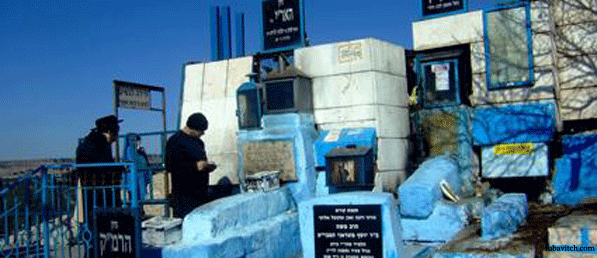(lubavitch.com) Friday, July 16, marks the anniversary of the passing, of Rabbi Isaac Luria on the fifth of the Hebrew month of Av.
Known as The Ari (The Lion), a Hebrew acronym for “the G-dly Rabbi Isaac,” Rabbi Luria’s thought and teachings have become the cornerstone of the study of Kabbalah and Chasidic philosophy. Still a popular figure in Jewish history and philosophy, 438 years after his passing, thousands of people make the pilgrimage to visit his tomb, in the old cemetery of Safed, Israel, on the yahrtzeit and throughout the year.
Born in Jerusalem in 1534, Rabbi Luria was orphaned from his father at a young age. His mother, unable to support her son, sent him to live with her brother, Mordechai Frances, a wealthy tax-farmer in Cairo, Egypt. A diligent student, Rabbi Luria studied under the tutelage of Rabbi David ibn Zimra, the Chief Rabbi of Egypt and a renowned authority on Jewish law, and Rabbi Betzalel Ashkenazi, the author the Shittah Mekubetzet – a compilation of Talmudic glosses from various renowned authorities.
At the age of 15, Rabbi Luria married, and under the patronage of of his father in law, continued with his studies. Devoting himself to the study of the Zohar and other esoteric works, Rabbi Luria took to a period of asceticism and meditation, studying alone in small cottage built on the banks of the Nile river. In 1569, after seven years of intensive study, he decided to move with his family to the city of Safed in Northern Israel.
At the time, the city of Safed served as preeminent center of Jewish scholarship and life, being home to such noted figures as Rabbi Yosef Caro, the author of the code of Jewish Law, Rabbi Moshe Cordovero, the author of the mystical work Pardes Rimonim, and Rabbi Shlomo Alkabetz, composer of the liturgical Sabbath hymn Lecha Dodi. Despite his youth, being only 35 at the the time, Rabbi Luria was soon accepted into their circle.
Over the course of the next two years, until his passing in 1572, Rabbi Luria began to disseminate his teachings on Kabbalah. Meeting and praying with his disciples in the hills and forests near Safed, Rabbi Luria emphasized the importance of increased study in the mystical teachings of the Torah, maintaining that despite their previous esoteric status, it was imperative to make it now accessible to the collective whole of the Jewish people. None of the Ari’s teachings were written during his life; instead they were collected by his leading disciple Rabbi Chaim Vital, principally in his work Eitz Chaim.
Today Safed remains a vibrant center of Jewish study and focus on the mystical teachings of the Torah in the tradition of Rabbi Luria.
Chabad has held an active presence in Safed city life since the initial emigration of Chabad Chasidim sent to Israel by Rabbi Schneur Zalmin of Liadi, the first Chabad Rebbe. Today, Chabad activities serving northern Israel are based in Safed, itself home to some 20 Chabad institutions, including several teaching seminaries for women, the renowned Ascent Institute, and the city’s largest soup kitchen.

Be the first to write a comment.